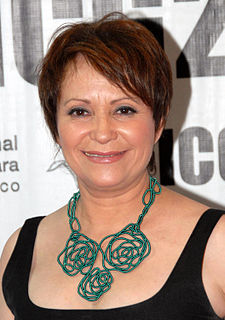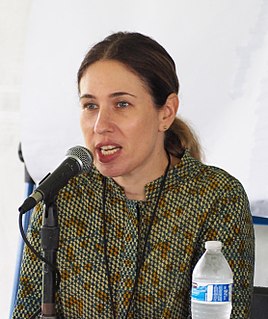A Quote by David Bezmozgis
When writing dialogue, I hear it in both Russian and English, and try to find a language that combines the two.
Related Quotes
English has always been my musical language. When I started writing songs when I was 13 or 14, I started writing in English because it's the language in between. I speak Finnish, I speak French, so I'll write songs in English because that's the music I listen to. I learned so much poetry and the poetic way of expressing myself is in English.
I realized over the years if I'm writing about humor, irony, satire, I much prefer to do that in English. And if there is sorrow, melancholy, longing, I much prefer to do that in Turkish. Each language has its own strength to me, and I feel connected and attached to both Turkish and English. I dream in more than one language.
Actually, I've taught creative writing in Turkey, at an English language university, where the students were native Turkish speakers, but they were writing their essays in English, and they were very interesting - even the sense of structure, the conventions of writing, the different styles of writing.
I have a funny relationship to language. When I came to California when I was three I spoke Urdu fluently and I didn't speak a word of English. Within a few months I lost all my Urdu and spoke only English and then I learned Urdu all over again when I was nine. Urdu is my first language but it's not as good as my English and it's sort of become my third language. English is my best language but was the second language I learned.
James Joyce's English was based on the rhythm of the Irish language. He wrote things that shocked English language speakers but he was thinking in Gaelic. I've sung songs that if they were in English, would have been banned too. The psyche of the Irish language is completely different to the English-speaking world.
I believe I'm very conscious of exactly what I'm doing. I'm auditioning lines of dialogue, and I'm interrogating whether the lines would translate from Russian into English the right way. The English that results can perhaps seem somewhat more formal than colloquial, but not so formal as to feel academic.
One of my favorite tricks was taking a page and having the first student translate it from English into whatever language he or she was working on, and the next one would translate it back into English and then into the foreign language, and we'd go around the room and compare the two English versions at the end, and it would be amazing how much survived.
When I'm writing a script, before I can write dialogue or anything, I have two or three hundred pages of notes, which takes me a year. So, it's not like "what happens next." I've got things that I'm thinking about but I don't settle on them. And if I try to write dialogue before then, I can't. It's just garbage.





































